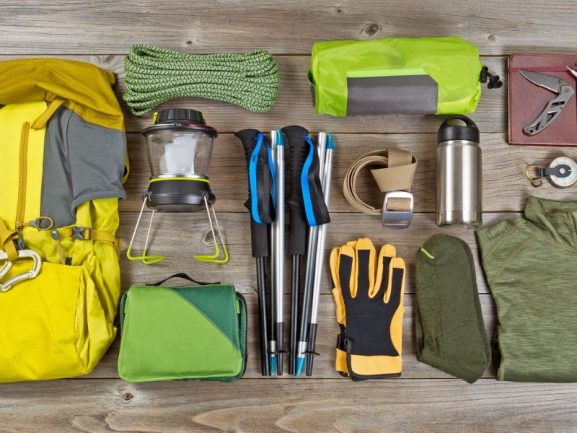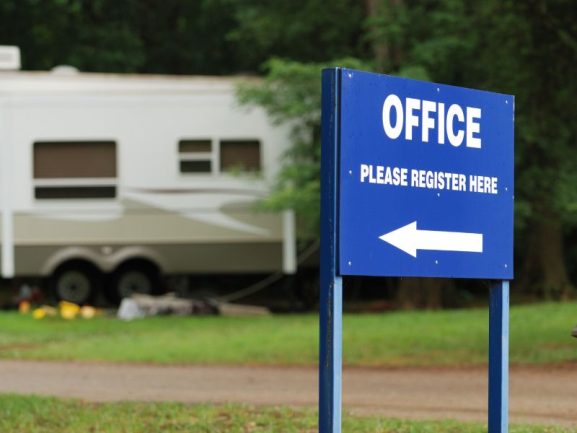Eco Camping! 8 Ways to Reduce Camping Waste
On average, a camper generates roughly 1 pound of waste a day, a combination of organic waste, food, single-use plastic, and so forth. Normally, this isn’t a big deal, but when you consider that nearly 80 million people go camping each year, the huge problem for campground owners, managers, and state park officials quickly become apparent. To solve this problem on our end, here are 13 ways to reduce your eco-footprint when camping and be as environmentally responsible as possible.
8 Ways to Reduce Camping Waste and Start Eco Camping
Eliminate Single-use Plastics
As we’re sure most of us are aware by now, single-use plastics are terrible for the environment. Not only are they extremely difficult to recycle, with most ending up in landfills, but whatever can be recycled unnecessarily creates waste and contributes to landfill problems, while consuming valuable resources to produce, transport, and dispose of.
The best way to cut this waste out of your camping trip is to bring as many reusable items with you as possible. From cutlery and plates to cups, bottles, containers, and more, there are plenty of options these days to remove this scourge from campgrounds forever. These items can also be taken to restaurants and theme parks nearby so there’s no excuse to keep using these terrible items to destroy the environment.
Eliminate Last-Minute Decisions on Food
Whether you’re traveling with children or solo, there’s nothing worse than running short on food and water and having to resort to takeout. And, while it can take a lot of trial and error to get the right amount of food for the duration of your camping trip, the best thing you can do is to plan. Planning meals in advance and packing only what you need reduces the likelihood of wasting food and allows you to save or freeze what’s left over for later.
Avoid Canned & Processed Food
Canned food is also an eco-friendly camping no-no. Not only are these cans created using a vast amount of resources, but the packaging often ends up in landfills and doesn’t biodegrade for a very long time. Instead of canned goods, opt for fresh fruits and vegetables and buy locally when possible. For proteins, fresh fish, lean meats, eggs, and dairy are all eco-friendly options.
Invest in Campground-Friendly Gear
Buying eco-friendly camping gear is another great way to reduce your eco-footprint when camping. Whether it’s a lightweight tent made from recycled materials or a camp stove that runs entirely on renewable energy sources, eco-friendly camping gear is available for all types and budgets.
Choose a Campground with Recycling Resources
When planning your eco-camping adventure, make sure to find a campground that offers eco-friendly resources for recycling. Not only does this reduce waste, but it also helps to keep our forests clean and pristine.
Compost Your Food Waste
Composting your food waste is one of the easiest eco-friendly camping tips we can give. Not only does composting reduce the waste going into landfills, but it also helps to keep our forests and campgrounds clean and healthy for future generations.
Pack Out What You Pack In
It’s extremely important to take everything with you when you leave your campsite. This includes all of your trash, food scraps, and any other items you’ve brought with you. Not only does this reduce the amount of waste entering landfills, but it also helps to preserve our forests for future campers.
Use Natural Soaps & Cleaning Products
Instead of using harsh chemicals that can pollute our water sources, eco-campers should opt for natural soaps, detergents, and cleaning products. Not only are these eco-friendly options better for the environment, but they often work just as well.
By following these eco-camping tips, you can ensure a safe and eco-friendly camping experience the next time you visit Massachusetts. Enjoy your eco-friendly adventure!
About the Author
For nearly two decades the Massachusetts Association of Campground Owners (MACO) has helped campers from across the country find the best privately-owned campgrounds in Massachusetts. With the outdoors firmly at the heart of what we do, our goal is to be a trusted repository of all things camping in Massachusetts.




